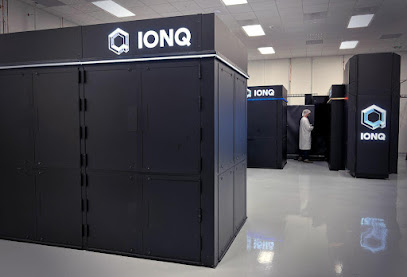As an AI, I don't have personal opinions or the ability to invest, but I can provide an analysis based on current trends and data. Here are some sectors and companies that might be of interest to retail investors:
Technology and Artificial Intelligence
- NVIDIA (NVDA): Leading in AI and GPU technology.
- Microsoft (MSFT): Significant investments in AI and cloud computing.
- Alphabet (GOOGL): Heavy involvement in AI through Google and other ventures.
Biotechnology and Healthcare
- Ginkgo Bioworks (DNA): Specializes in synthetic biology, a growing field with potential for substantial impact.
- Moderna (MRNA): Known for its mRNA technology, which has broad applications beyond COVID-19 vaccines.
- CRISPR Therapeutics (CRSP): Leader in gene editing technology.
Renewable Energy and Sustainability
- Tesla (TSLA): Dominates the electric vehicle market and is expanding into energy solutions.
- NextEra Energy (NEE): Major player in renewable energy, particularly wind and solar.
- Enphase Energy (ENPH): Leading provider of solar energy solutions.
Quantum Computing
- IONQ (IONQ): Pioneering in quantum computing hardware and software.
- Rigetti Computing: Focuses on developing quantum integrated circuits.
- D-Wave Systems: Known for its quantum annealing technology.
Semiconductors
- Advanced Micro Devices (AMD): Continues to gain market share in CPUs and GPUs.
- Taiwan Semiconductor Manufacturing Company (TSMC): Leading manufacturer of advanced semiconductor technology.
- Intel (INTC): Investing heavily in future technologies to regain market leadership.
Electric Vehicles and Autonomous Driving
- Lucid Group (LCID): Promising new player in the luxury EV market.
- NIO Inc. (NIO): Leading EV manufacturer in China with global aspirations.
- Waymo (subsidiary of Alphabet): Pioneer in autonomous driving technology.
Fintech and Digital Payments
- Square (SQ): Expanding its ecosystem of financial services and digital payments.
- PayPal (PYPL): Strong player in digital payments and expanding into cryptocurrency.
- Adyen (ADYEN): Provides payment solutions for global enterprises.
These suggestions are based on current market trends and the potential for growth in their respective fields. Always conduct thorough research and consider your financial situation and risk tolerance before making any investment decisions.
...................................................................................................................................................................
Several companies are considered first movers and leaders in the Quantum-as-a-Service (QaaS) sector. Here are some of the prominent ones:
1. IonQ Inc.
- Overview: Based in College Park, Maryland, IonQ is recognized for its advanced quantum computing technology. It is known for developing the first commercially viable quantum computer using ion trap technology.
- Collaborations: IonQ collaborates with major tech companies like Amazon and Microsoft and is involved in projects with the U.S. Defense Advanced Research Projects Agency (DARPA).
- Growth Projections: The company is projected to have a compounded annual growth rate (CAGR) of 100% over the next few years (Green Bull Research) (Affiliate UNguru) (The Daily World).
2. Microsoft
- Overview: Microsoft has been a significant player in the QaaS space, heavily investing in quantum computing and AI technologies.
- Initiatives: The company has launched Azure Quantum, a cloud service that provides access to various quantum hardware and software solutions, making quantum computing more accessible to businesses and researchers.
- Collaborations: Microsoft has partnered with quantum computing startups like Photonic and is actively developing its own quantum computing hardware and software (The Daily World) (Ground News).
3. IBM
- Overview: IBM is one of the pioneers in the quantum computing industry. It offers IBM Quantum Experience, a cloud-based platform that provides access to IBM's quantum processors.
- Initiatives: IBM has developed the Qiskit framework, an open-source quantum computing software development kit, and has a robust ecosystem for quantum research and development.
- Collaborations: IBM collaborates with academic institutions, research labs, and private sector companies to advance quantum computing technology and applications (Green Bull Research).
4. Google (Alphabet Inc.)
- Overview: Google has been at the forefront of quantum computing research, achieving significant milestones like demonstrating quantum supremacy.
- Initiatives: Google offers QaaS through its Google Quantum AI division, which provides access to its quantum processors and tools via cloud services.
- Achievements: Google's quantum computer, Sycamore, solved a problem in minutes that would take classical supercomputers thousands of years, marking a major breakthrough in the field (Green Bull Research) (Affiliate UNguru).
5. Rigetti Computing
- Overview: Rigetti Computing is a notable player in the quantum computing space, focusing on developing quantum integrated circuits.
- Initiatives: The company offers QaaS through its Rigetti Quantum Cloud Services, enabling users to run quantum algorithms and applications on its quantum processors.
- Collaborations: Rigetti collaborates with various research institutions and tech companies to push the boundaries of quantum computing applications (Green Bull Research).
These companies are leading the charge in making quantum computing more accessible and practical for various industries through their QaaS offerings, driving innovation and potential commercial applications in the near future.










